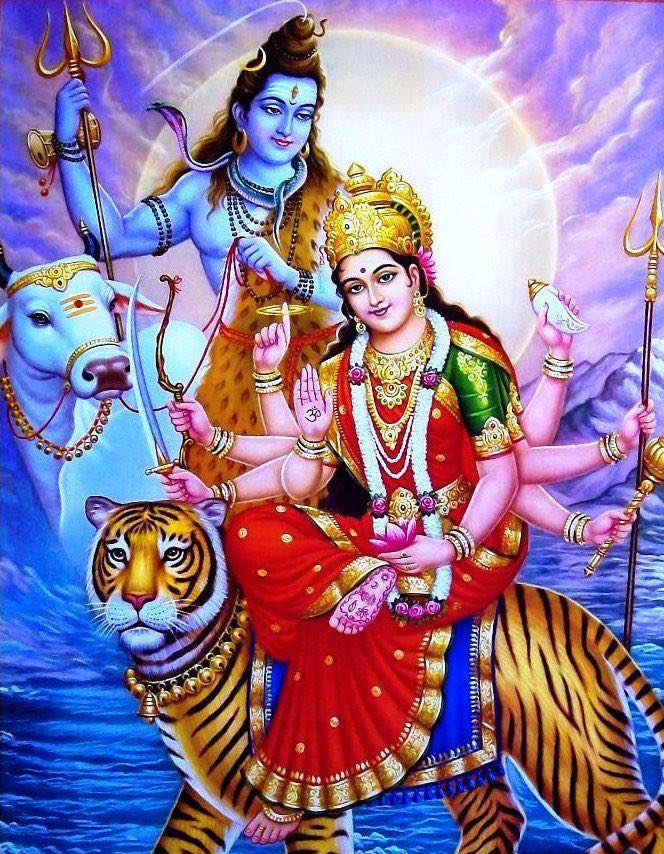Navratri is one of the most ancient festivals of sanatana-dharma

Navratri is one of the most ancient festivals of sanatana-dharma. It's story goes back to the ancient times. Today, the same way as many thousand years ago, the date of the festival is determined by the lunar calendar.
Usually, navratri lasts for nine days. Sometimes, the festival is celebrated for eight days - in this instance, the last day is taken as two days.
"Nava" means nine, and "ratri" means night. Therefore, the literal translation of the word "navratri" is nine nights. This word also signifies a new beginning, a birth of something new and good.
The navratri is celebrated twice a year. The "vasant-navratri" marks the beginning of spring, and the "shardi-navratri" takes place in autumn.
Navratri falls during the period when one season supersedes the other. It represents the interconnectivity of the seasons of the year - when warm days come in place of cold days and vice versa.
Every action acts like an echo on the whole universe and ourselves. Change happens on a physical as well as the subtle plane. And, because the universe is hidden within every human being, these changes are felt by everyone.
To whom are the prayers during navratri dedicated to? To the Adi Shakti, the Mother Earth, the goddess, from whom the universe emerged. The navratri is her festival. She comes before us as a goddess in different forms and names. Each one her forms represents a particular energy, shakti. Each day of navratri is dedicated to her specific form. For instance, Lord Shiva has nine shaktis, energies. We always see one of these energies on the left side of Shiva. The rest of the forms are invisible, but for worshipping Shiva and realizing him, all shaktis are worshipped. This makes Shiva happy and he gives his blessings.
Many believers worship their ishttha, a form of God that is the closest to their heart. If it's Lord Rama, they worship him and read the Ramcharitmanasa. If it's Lord Krishna, they worship him and read the Bhagavad Gita.
The days of navratri have a certain powerful energy about them, which is conducive for carrying out sadhana and fasting. Every person decides how to fast for themselves based on their state of health; it can be a vegetarian diet or a much stricter one. It's favorable to spend more time doing sadhana then on usual days, to decide the number of malas, or the number of mantra utterances on the beads, mala, and adhere to this decision for all the nine days.
The sadhana that you carry out during the period of navratri has an auspicious effect, even if one did not perform it diligently before. We get and accumulate energy from the universe in this period. It purifies us, gives us strength and helps us to grow further.

 RU
RU IND
IND